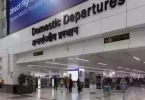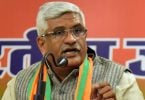Medical tourism is seen as a key element of Pakistan’s new National Tourism Policy 2010, so a new task force has been formed to work out proposals to promote and develop medical, health, spiritual and wellness tourism in Pakistan. The Federal Minister for Tourism Moulana Atta-ur-Rehaman believes that Pakistan is missing out on medical tourism opportunities by failing to promote it properly. The task force will seek suggestions from provinces and other stakeholders concerned to implement medical tourism in Pakistan.
Tourism officials claim that Pakistan can compete with other countries, and could even be less than half the price of India, although as Pakistan and India are bitterly opposed to each other, such claims have to be taken in context. They also want to take advantage of India’s problems, ironically partly caused by Pakistan.
Pakistan may have potential to develop medial tourism, but needs co-ordination and all parties working together. Individual hospitals and agencies have acted on their own, but with very limited success. This is the reasoning behind setting up the task force that seeks to get all stakeholders of the country on board, including hospitals, hotels and the travel trade. The Punjab government is already working on developing a 150 bed hospital for kidney transplantation and heart surgery, two specialties that Pakistan wants to develop, to target medical tourists.
The new National Tourism Policy 2010 seeks to offer local and foreign investors improved fiscal incentives and soft loans so that the terrorism affected tourism industry infrastructure can be rehabilitated across the country. The federal government aims to assist tourism promotion, and wants the four provincial governments to do the same. The State Bank of Pakistan has been approached to approve the creation of a revolving credit facility based on soft terms and low interest rates. To encourage local and foreign investors, improvement in tax and duty incentives is being worked out so that new tourist facilities are created with new investment in all parts of the country.
Pakistan’s tourism industry has suffered falls in numbers and revenue in the last two years, and the existing tourism policy dates back to 1991.Despite privatization of three big hotels owned by the Pakistan Tourism development Corporation (PTDC) no new further investment have been made in these facilities, so plans to privatize other state owned hotels and motels has been put on hold. The Tourism Training Institute, was occupied by the Taliban, but has now been brought under control of Pakistan forces; however, these forces want to turn it in to jail. Tourism ministers want it back so that tourism training can be revived. This points to the main problem that Pakistan has.
However good any tourism or medical tourism initiative is, until the problems of terrorism in general, the Taliban in particular, and the powder-keg relationship between India and Pakistan are solved, travellers will be wary of the country.























